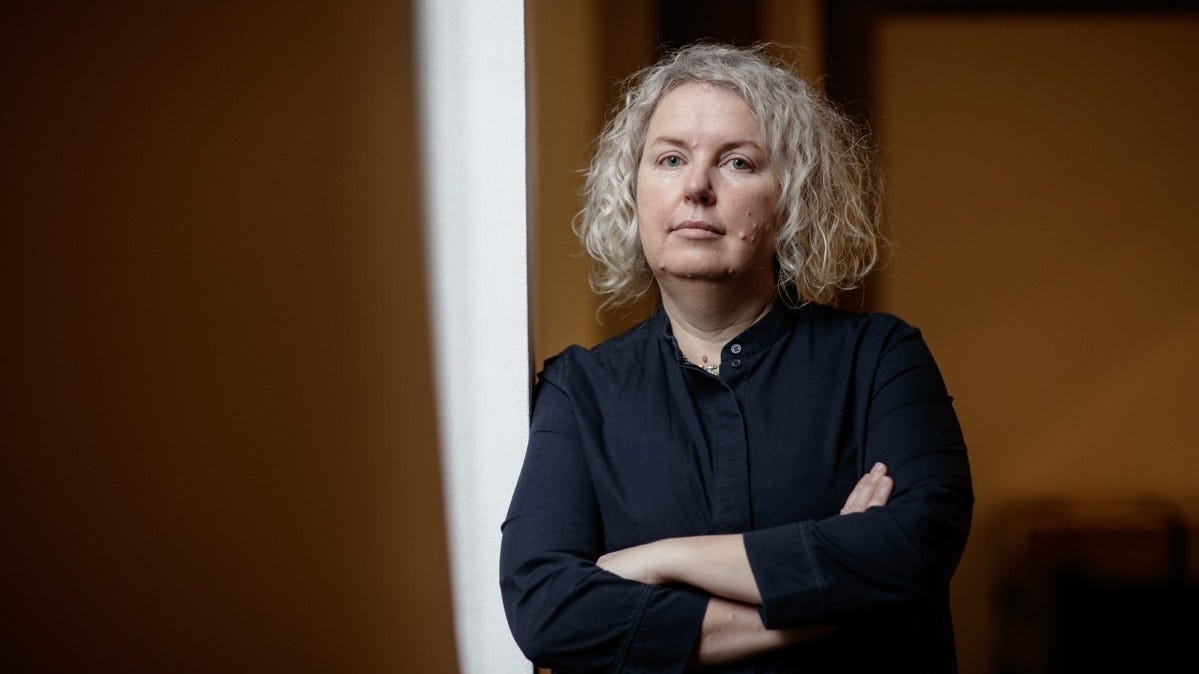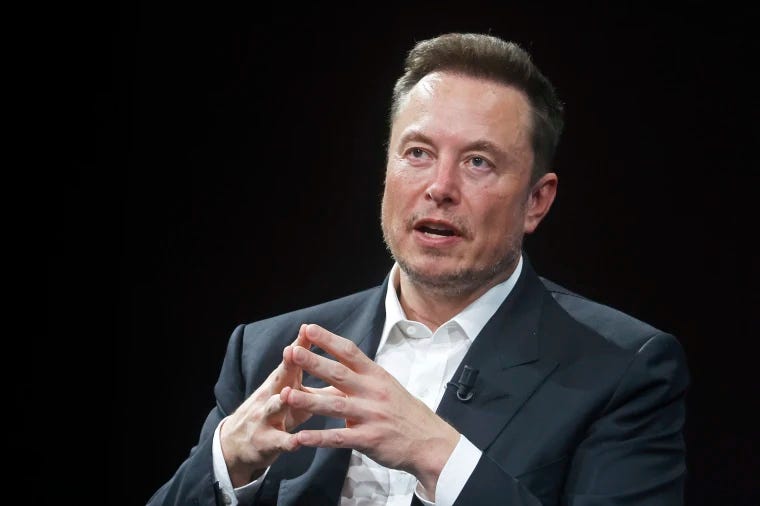Is ChatGPT the last technological nail in the coffin of traditional school and college education models?
WE DON'T NEED NO EDUCATION?
Trinity Provost Linda Doyle recently warned that the impact of Artificial Intelligence (AI) on University learning will make the pandemic’s effect “pale into insignificance.”
Writing for the Irish Universities Association (IUA) Doyle mentioned that while she had initially sought to write a short piece on research more generally AI has become the elephant in the room that we can no longer ignore. “Anything we discuss now has to acknowledge the AI landscape,” she said.
The Provost’s adumbration comes amid the meteoric rise of a whole range of AI tools that are supplementing certain industries while at the same time upending others.
Could you be next?
Elon Musk - Frankenstein
Elon Musk, one of the founders of AI company OpenAI, has described the technology as “scary good” adding that “we are not far from dangerously strong AI.”
For someone as eccentric and forward thinking as Mars-dwelling Musk to express worry may shed light on why others are urging caution on AI fearing the broader societal repercussions that the technology could have.
Musk and over 1,000 other AI experts put pen to paper recently calling on OpenAI to halt the march of the emerging tech before “machines flood our information channels with propaganda and untruth”, urging caution on the development of “nonhuman minds that might eventually outnumber, outsmart, obsolete and replace us” (my emphasis).
Elon Musk has launched an artificial intelligence startup that will be “pro-humanity”, as he said the world needed to worry about the prospect of a “Terminator future” in order to avoid the most apocalyptic AI scenarios - The Guardian
For a man who named his child ‘X Æ A-Xii’ to be worried about nonhuman minds is rather ironic, however, Musk, Doyle et al are right: AI will have as much an impact on the economy as mechanised loom did on weavers and knitters during the first Industrial Revolution. That Revolution had a sizeable and devastating impact on industry and society as a whole causing large swaths of dispossessed proletarians to turn to the murky forces of political extremism and direct action: the current Second Industrial, or Technological, Revolution is going full circle.
Goldman Sachs estimates that 300 million jobs could be lost or diminished to fast-growing AI raising global GDP by close to 10 per cent.
ChatGPT
The most advanced and touched upon AI tool at the moment is Chat Generative Pre-Trained Transformer otherwise known as ChatGPT.
The glorified search bar on steroids operates on a predictive, machine learning Natural Language Process known as a Large Language Model (LLM). Simply put: the user asks the chat bot a question and the AI will gather existing information to formulate or generate a coherent frame in a legible manner having been fed data by software engineers. ChatGPT doesn’t actually understand the content it transmits, it simply calculates and forms relationship between words to deposit answers. Indeed, some of the answers can be complete gobbledygook. Just ask the lawyer who used ChatGPT for legal advice and ended up receiving, according to the presiding judge, “Six… bogus judicial decisions with bogus quotes and bogus internal citations.” Not only does it answer (certain) questions it can generate music, poems and even life advice. Why am I single? ChatGPT even has an answer for such a desperate question as well!
After just five days following its launch ChatGPT acquired a million users. For context the highly acclaimed social media platforms Instagram and Twitter reached that figure in 2.5 months and 2 years respectively.
The company that launched ChatGPT OpenAI is currently worth over $20billion.
You’ve been replaced?
Since the AI’s launch, entire sections of society from accounting to journalism (including this writer) have been afflicted with an unfathomable foreboding at the prospect that their cushy job could be made redundant if ChatGPT’s capabilities are fully unleashed into the ether.
Such angst is not a phobia or an iteration of old age Luddism, rather it’s a realisation of the tremendous and earth-shattering impact that sophisticated AI could have on society.
Nowhere is this more conspicuous than in education.
Educators currently have to contend with the Gen Z technological zeitgeist in which the students have become the masters. Educators of a different era are having trouble keeping up with the latest technological advancements and trends that has, among other developments, outsourced part of the classroom to YouTube.
So when OpenAI’s ChatGPT started passing exams, doing homework, and writing essays schools and third-level institutions found themselves caught in a tailspin wondering if the world of artificial intelligence will usher in artificial education.
The capabilities possessed by this iteration of AI in the form of ChatGPT could - teachers if you’re reading please cover your eyes - make modern education as we know it today redundant.
Some may herald this as progressive, but are educators preparing for this new world order?
ChatGPT eat my homework?
As part of my leaving certificate, I chose History as one of my three subject choices. I still recall my teacher assigning the class three questions every night for homework.
Yet having familiarised myself with the world of ChatGPT I have deduced that this method of rote learning has become redundant.
Let’s put it to the test:
When I asked the now infamous chat bot a basic history question, ‘What were the main causes of world war 2?’, the answer it provided was very detailed and incisive covering all ground that I’m sure my esteemed teacher all those years ago would be very pleased with.
Citing and further detailing developments such as the Treaty of Versailles, the Rise of Fascism and the Failure of Appeasement ChatGPT concludes - “Overall, the complex interplay of political, economic, and social factors created a volatile international environment that ultimately led to the outbreak of World War II.”
Add a myriad of other subjects beyond history and bob’s your uncle - ChatGPT has replaced homework.
I can already feel myself morphing into a grizzled, geriatric chair-swinger remonstrating to younger people about how ‘back in my day I had to answer questions myself: we didn’t have no darn ChatGPT.’
However, if I were to ask the chat bot a more subjective question it appears rather flummoxed and unable to comprehend the emotive intelligence of a human mind, demonstrating an insularity to its thought process.
In keeping with the theme of history, I asked ChatGPT whether the war in Vietnam was justified: beginning the chat bot said, “As an AI language model, I don't have personal opinions or beliefs.” However, ChatGPT did provide a rather quotidian pros and cons list to the war without much detail or insight of any profound nature.
Positive Change?
As the author, columnist and economist David McWilliams recently said, “the development of AI and the likes of ChatGPT means we must shift our education system from rote learning and regurgitation.”
During the pandemic students were given the option of continuous assessment heralding in a reform of what some may call the antediluvian Leaving Certificate examination, albeit in the most unfortunate of circumstances. Many hoped this would form part of a long term reform of the system.
While that didn’t transpire, maybe ChatGPT will be the catalyst for this change?
McWilliams adds that, “In a world of AI, the Leaving Cert is redundant.”
While the repetitive nature of secondary education may result in students becoming dependent on the chat bot third level educators have some scope to avoid rote learning by assigning new and updated essays and assignments to circumvent existing software.
They must act fast: Professors Brian Lucey from Trinity Business School and Michael Dowling from Dublin City University (DCU) conducted a study
that found essays produced by ChatGPT would be accepted for submission in an academic journal.
Speaking to the college student publication for the University of Canterbury (UL) in New Zealand, Canty, an anonymous student admitted to using ChatGPT to write a series of college essays. Lamenting the plight of “really struggling” to put their knowledge to paper the anonymous student, who goes by the pseudonym ‘Essay Witch’, described how it took less than an hour to write a 1,000 word essay using the AI.
“I don’t think of this as cheating. People use it for getting over writer's block,” the student said.
UL was quick to remind students that using ChatGPT for essays is in fact cheating: “An entire essay written by AI is no different from one written by another person.”
But, while some progress has been made on AI plagiarism checkers, ultimately an essay generated by ChatGPT can be difficult to discern with a boomer professor in America making an absolute fool of himself treeing to outsmart his students reminiscent of Principal Ed Rooney in Ferris Bueller’s Day Off.
When Dr Jared Mumm rescinded the diplomas of students at Texas A&M University he claimed to have discovered EVERY student had used AI for their final essay.
“I copy and paste your responses in [ChatGPT] and [it] will tell me if the program generated the content.”
The problem?
The bot cannot detect its own content with ChatGPT erroneously taking credit for all sorts of work including the novel Crime and Punishment.
This case study underscores the necessity to educate educators on AI before lives get destroyed.
Indeed, the fine line between original work and AI generated content will only grow wider as the parameters - that allows AI to make predictions - increase: the latest version of ChatGPT, ChatGPT-4, has 100 trillion parameters.
Although, despite its precipitous parameters, the latest version of ChatGPT has seen its accuracy fall from 97.6 per cent to just 2.4 per cent from March to June 2023 suggesting a laziness on the part of ‘advanced’ AI - see there just like humans!
When calculators were first introduced in the 1980s a group of maths teachers in the United States went out in droves to protest what they saw as ‘security boxes’ that “would leave students with no reason to learn computational skills.”
With numeracy skills on a downward spiral across the developed world in recent years, will ChatGPT become the new calculator for words?
How long before ChatGPT and teachers as well as other industries come into increasing conflict?
To avoid armageddon it is vital Universities provide the space for AI education. I am delighted to announce the launch of an Artificial Intelligence society in Dublin City University (DCU) for the forthcoming academic year with several branches set to pop up in other third level facilities.
Want to make peace with our robot brethren?
Sign up and get involved!






